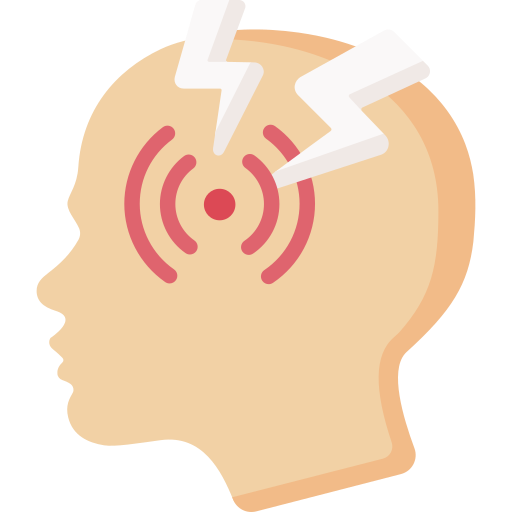MOLD TOXIN TEST (MYCOTOX PROFILE)
MYCOTOX PROFILE – UNVEILING THE HIDDEN DANGER
MycoTOX is a term derived from two words: "Myco" and "TOX." "Myco" relates to fungi, while "TOX" is short for toxins, and harmful substances that can have adverse effects on human health.
When mold spores become airborne and are inhaled, they can trigger a range of health issues. The MycoTOX Profile is a specialized testing method used to detect and quantify mycotoxins. It provides a comprehensive analysis of the types and levels of mycotoxins present in a sample.
Symptoms/Conditions That Can Be Caused By Mold Exposures
Most of the mold exposure is through air. Exposure to mold can lead to a range of symptoms and health conditions, especially in individuals who are sensitive or allergic to mold. The severity of these symptoms can vary depending on factors such as the type of mold, the duration of exposure, and the individual's susceptibility. Here are some common symptoms and conditions that can be caused or exacerbated by mold exposure:
It's essential to note that not everyone exposed to mold will develop these symptoms, and some individuals may be more sensitive to mold than others. Additionally, the type and concentration of mold, as well as the duration of exposure, can influence the severity of symptoms.
Respiratory Symptoms: Coughing, wheezing, shortness of breath, chest tightness, sinus congestion, sore throat, runny or stuffy nose
Allergic Reactions: Sneezing, itchy or watery eyes, skin rashes or hives, itchy throat or ears, skin irritation
Upper Respiratory Tract Infections: Mold exposure may weaken the immune system's defenses, making individuals more susceptible to upper respiratory infections like colds and flu.
Fatigue: Activation of the immune response can lead to low energy
Headaches: Constant Headaches and migraines
Neurological Symptoms: In rare cases, mold exposure has been associated with neurological symptoms such as memory problems, difficulty concentrating, and mood changes.
Skin Issues: Mold spores and mycotoxins can irritate the skin, leading to rashes, itching, or dermatitis in some individuals.
Immunosuppressed Individuals: Individuals with weakened immune systems, such as those with HIV/AIDS or undergoing immunosuppressive therapy, are at higher risk of severe mold-related illnesses.
KEY COMPONENTS OF THIS TEST
Consultation: To book this test, you have to book an initial consultation with the naturopathic doctor. Make sure that this is the right test for you based on a proper assessment made by your naturopathic doctor.
Blood Sample Collection: The first step in the MycoTOX Profile process involves collecting samples (mostly urine). These samples are carefully handled to avoid contamination.
Laboratory Analysis: High-performance liquid chromatography (HPLC) and mass spectrometry (MS) are used to identify and quantify mycotoxins in the sample.
Results & Quantification: The concentration of each mycotoxin present in the sample is determined, allowing for an assessment of the risk level. Once the analysis is complete, your healthcare provider will receive the results.
If testing reveals that you have a burden of mycotoxins, your naturopathic doctor will develop a comprehensive plan including diet, supplements, botanical medicines, IV therapy, and other detoxification strategies to help you overcome your symptoms.
WHICH PATIENTS CAN BENEFIT FROM MYCOTOX PROFILE TEST?
The MycoTOX Profile test can benefit a range of patients, particularly those who may be experiencing unexplained health issues or symptoms that could be related to mycotoxin exposure. Here are some groups of patients who may benefit from the MycoTOX Profile test:
Patients with Mold Allergies: People who have known mold allergies or sensitivities may benefit from the MycoTOX Profile test. Exposure to mycotoxins from mold can exacerbate allergy symptoms and contribute to ongoing health issues.
Patients with Suspected Environmental Mold Exposure: Those who suspect that their home or workplace has a mold problem can use the MycoTOX Profile test to assess whether they have been exposed to mycotoxins. This is especially important for individuals who live or work in buildings with a history of water damage or mold growth.
Patients with Respiratory Issues: Respiratory symptoms like coughing, wheezing, and sinus congestion can be caused or worsened by mold exposure. MycoTOX Profile can be valuable in identifying mycotoxin-related respiratory issues and guiding treatment.
Chronic Illness Patients: Patients with chronic illnesses like fibromyalgia, chronic fatigue syndrome, or autoimmune disorders may find value in ruling out mycotoxin exposure as a contributing factor to their condition.
It's important to note that the MycoTOX Profile test is a diagnostic tool, and its results should be interpreted by a healthcare professional in the context of the patient's overall health and medical history. If a patient falls into one of the above categories and suspects mycotoxin exposure, they should consult with a healthcare provider who can determine whether the test is appropriate and how the results should be used in managing their health.
To book this test, and to see if this test is right for you, please first book a naturopathic consult with the naturopathic doctor
TREATMENT FOR MOLD EXPOSURE
Treating mold exposure through IV therapy and supplementation has gained attention as an effective naturopathic approach to alleviate its adverse effects. Mold exposure can lead to various health issues, including respiratory problems, allergies, and fatigue.
IV therapy involves delivering essential nutrients and antioxidants directly into the bloodstream, which may help support the immune system and detoxification pathways.
Supplementation, on the other hand, typically includes vitamins, minerals, and herbal remedies that support overall health and combat mold-related symptoms. Common supplements include vitamin C, N-acetylcysteine, and glutathione, known for their antioxidant and detoxifying properties.
Treating mold-related health issues is crucial, but equally vital is identifying and remediating the source of mold. Mold not only triggers respiratory problems, allergies, and fatigue but can also damage property and compromise structural integrity. Merely addressing symptoms without eliminating the source is a temporary solution, as mold will likely return. Identifying the root cause, such as leaks, poor ventilation, or humidity, is paramount to prevent recurrence.
CONCLUSION
The MycoTOX Profile test is a crucial tool in the battle against mycotoxin contamination. Mold is insidious in our environment and can be difficult to detect and treat. By providing early detection, quantification, and risk assessment, this test can empower us to make informed decisions that can help improve our health and protect us from contamination from mold and mold-related illnesses.















